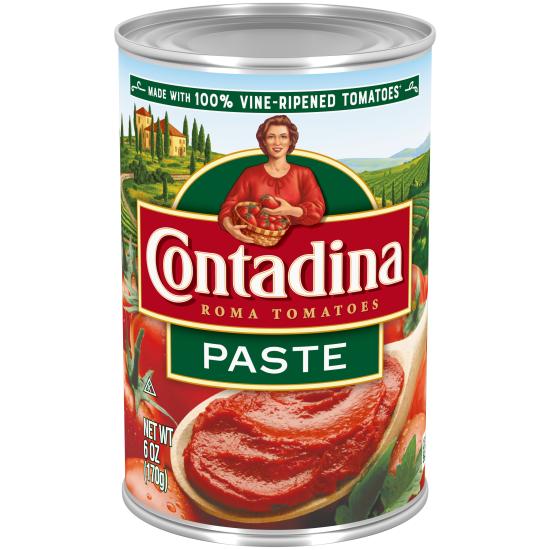Skip to comments.
Could lycopene—a plant extract—be an effective antidepressant?
Medical Xpress / Wiley / Food Science & Nutrition ^
| Feb. 5, 2025
| Heyan Xu et al
Posted on 02/10/2025 7:16:45 PM PST by ConservativeMind
Emerging evidence suggests that lycopene—a natural plant extract—may have antidepressant properties. New research reveals the mechanisms behind its antidepressant effects.
In mice with depressive-like behaviors, brain analyses revealed impairments in the hippocampus. Lycopene treatment lessened these impairments and reversed the animals' depressive-like traits.
Lycopene treatment boosted the expression of brain-derived neurotrophic factor (BDNF), a protein with roles in many aspects of brain function. Experiments indicated that a signaling pathway involving BDNF (called the BDNF-TrkB pathway, which helps regulate learning, memory, and communication between neurons) is inhibited in mice with depression, and that lycopene treatment alleviates this inhibition.
The study "offers an effective avenue for the development of novel antidepressant therapies," the authors wrote.
(Excerpt) Read more at medicalxpress.com ...
TOPICS: Health/Medicine
KEYWORDS:
Lycopene is available in tomatoes, sauce, and paste, along with supplements.
To: Mazey; ckilmer; goodnesswins; Jane Long; jy8z; ProtectOurFreedom; matthew fuller; telescope115; ...
The “Take Charge Of Your Health” Ping List
This high volume ping list is for health articles and studies which describe something you or your doctor, when informed, may be able to immediately implement for your benefit.
Email me to get on either the “Common/Top Issues” (20 - 25% fewer pings) or “Everything” list.
2
posted on
02/10/2025 7:17:24 PM PST
by
ConservativeMind
(Trump: Befuddling Democrats, Republicans, and the Media for the benefit of the US and all mankind.)
To: ConservativeMind
Are Italians less depressed than the rest of us?
To: ConservativeMind
I’m always happy eating spaghetti and pizza...
4
posted on
02/10/2025 7:19:14 PM PST
by
decal
(They won't stop, so they'll have to be stopped)
To: ConservativeMind
Well, I’ve never been depressed eating salsa.
5
posted on
02/10/2025 7:21:41 PM PST
by
MeanWestTexan
(Sometimes There Is No Lesser Of Two Evils)
To: ConservativeMind
Try Dr. Trump’s Old #47 Happy Post Medicine. Dispensed for free on FR.
“good for what ails ya”
6
posted on
02/10/2025 7:24:37 PM PST
by
hardspunned
(Look for the“Putin Stooge” libel, news from Ukraine you’ve gradually grown to trust over 30 months )
To: ConservativeMind
I’m not familiar with lycopene, but lycopodium (club moss) is a common homeopathic remedy with many uses, one being for anxiety.
7
posted on
02/10/2025 7:24:44 PM PST
by
ponygirl
(Stay gold.)
To: decal
This explains why I was so happy in Kindergarden...
Library Paste !!
8
posted on
02/10/2025 7:27:50 PM PST
by
tet68
( " We would not die in that man's company, that fears his fellowship to die with us...." Henry V.)
To: Flaming Conservative
To: irishjuggler
OK! Eat more tomatoes! (or ketchup)
To: ConservativeMind
11
posted on
02/11/2025 2:49:06 AM PST
by
Getready
(Wisdom is more valuable than gold and harder tro find. )
To: ConservativeMind
I guess that’s why my field mice are always destroying my tomato plants!
12
posted on
02/11/2025 2:52:23 AM PST
by
Getready
(Wisdom is more valuable than gold and harder tro find. )
To: ConservativeMind
13
posted on
02/11/2025 3:17:10 AM PST
by
sauropod
(Make sure Satan has to climb over a lot of Scripture to get to you. John MacArthur Ne supra crepidam)
14
posted on
02/11/2025 8:52:17 AM PST
by
TTFX
To: ConservativeMind
A tablespoon a day taken with some olive oil!

Lycopene bioavailability
Lycopene bioavailability from a single dose of fresh tomatoes or tomato paste (23 mg lycopene) ingested together with 15 g corn oil was compared by analyzing carotenoid concentrations in the chylomicron fraction. The lycopene isomer pattern was the same in both fresh tomatoes and tomato paste. The triacylglycerol response in chylomicrons was not significantly different after both treatments. Ingestion of tomato paste was found to yield 2.5-fold higher total and all-trans-lycopene peak concentrations (P < 0.05 and P < 0.005, respectively) and 3.8-fold higher area under the curve (AUC) responses (P < 0.001) than ingestion of fresh tomatoes. The same was calculated for lycopene cis-isomers, but only the AUC response for the cis-isomers was significantly higher after ingestion of tomato paste (P < 0.005). No difference was observed in the alpha- and beta-carotene response. Thus, in humans, the bioavailability of lycopene is greater from tomato paste than from fresh tomatoes.
Disclaimer:
Opinions posted on Free Republic are those of the individual
posters and do not necessarily represent the opinion of Free Republic or its
management. All materials posted herein are protected by copyright law and the
exemption for fair use of copyrighted works.
FreeRepublic.com is powered by software copyright 2000-2008 John Robinson
